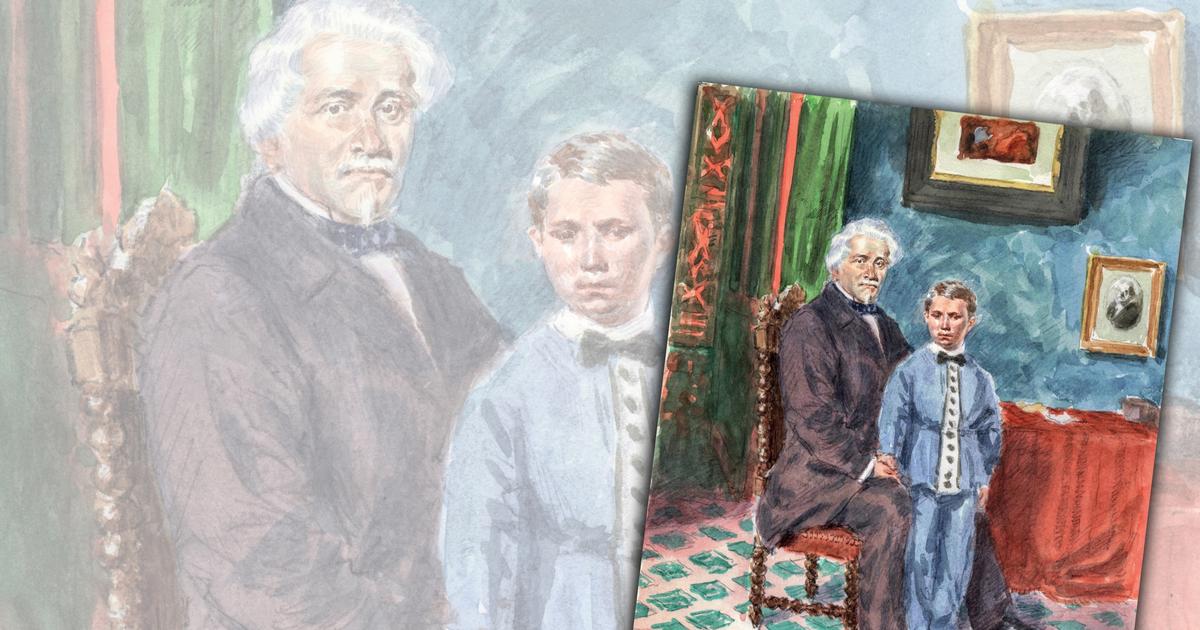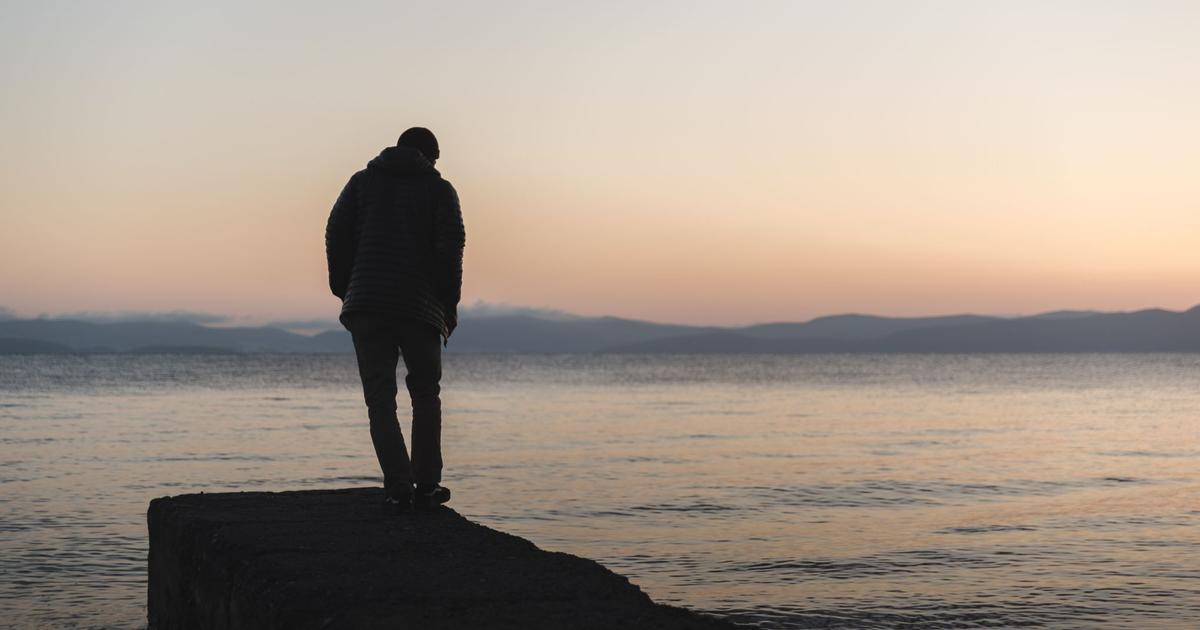The child is shaking.
Everything became so dark around him.
The draperies, the clothes her grandparents wear, her own outfit and her little sister's dress.
Worn down by the illness of her husband, who for more than two years has been treated in a nursing home, their mother has just died.
What does death mean to a five-and-a-half-year-old child?
How does he feel?
A scare perhaps.
Hoping to chase her away, Charles knelt down in front of the small altar that Elisabeth de Foucauld had set up in her room and he recited the prayer she had taught him:
"My God, bless Papa, Mama, Grand- dad, grandma, grandma Foucauld and little sister.”
She had told him that his older brother should not be included in this petition because, having died a month after his birth, he had already ascended to heaven.
Did mom join him?
His grandparents told him that, from up there, she would henceforth watch over him and Marie.
Snuggled up in the arms of their nurse Rosine, the little girl cries.
To discover
Discover the “Best of the Goncourt Prize” collection
Read alsoBy what miracle will Charles de Foucauld become a saint?
Five months later, Charles and Marie learn that God has called their father, Viscount Édouard de Foucauld, back to him.
Charles retains only a vague memory of him.
Shortly after this new death, their paternal grandmother arrived in Strasbourg.
Overwhelmed by the disappearance of her son, she wants to go rest in the Vosges and takes her grandchildren.
In Mirecourt, while all three were walking in the countryside, they are suddenly surrounded by a herd of cows.
The Vicomtesse de Foucauld takes fright.
She collapses, victim of a heart attack.
Back in the big house in the rue des Échasses, Charles and Mimi are surrounded by tenderness.
His maternal grandfather, Colonel de Morlet, is extremely indulgent with the two orphans he has become the guardian of.
He is not going to reproach Charles for his gluttony or his passions.
He is not even alarmed by his anger, sometimes violent, when the child thinks he is being made fun of.
The former engineer officer often talks to Charles about his ancestry.
Bertrand de Foucauld, who went on a crusade with Saint Louis, who died at Mansourah in Egypt, and Armand de Foucauld, a refractory priest, who was executed during the Revolution.
He inculcates in her the love of France.
And as his daughter did, take care of her Christian education.
Soon Charles was enrolled at the Episcopal College of Saint-Arbogast, then joined the Imperial High School in Strasbourg.
He learns easily.
Too much perhaps.
He does not give his full measure, but manages to stay among the ten best students in his class.
In summer, always accompanied by Rosine, they spend part of their holidays with Mimi at the Château de Louÿe, with their father's sister, their aunt Inès and her husband, Sigisbert Moitessier.
They have two daughters.
A tender friendship will unite Charles with his cousins, especially Marie.
She is eight years older than him.
In 1870, the war between France and Germany upset the course of their existence.
Colonel de Morlet decides to take his whole family to Switzerland, far from the fighting.
On their return, Strasbourg having been annexed by Germany, the family settled in Nancy.
Charles is enrolled in a new establishment where he will forge lasting ties with Gabriel Tourdes, the son of a doctor.
Charles makes his first communion.
The same year, he obtained the
Selected Works
of Lucian of Samosata, who liked to mock Christians in particular, but also all those who believe in the supernatural.
He discusses it with Gabriel.
The two teenagers are seduced by the ferocious irony of the rhetorician.
They discover other, more contemporary writers, who reinforce their incredulity.
Soon, Charles loses faith.
If God does not exist, why would he deprive himself of the pleasures to which his body aspires?
But in order not to upset his grandfather, he hides his agnosticism.
After passing the first part of the baccalaureate, in accordance with the wishes of the colonel who wished to see him embrace a military career, he joined the Sainte-Geneviève school in Paris.
It prepares its students for the Polytechnique and Saint-Cyr competitions.
The cover of
Figaro Hors-Série
Charles de Foucauld, a voice in the desert Private collection-Color by Klimbim et Fond
Charles de Foucauld, a voice in the desert, 164 pages, €12.90, available on newsstands and Figaro Store









/cloudfront-eu-central-1.images.arcpublishing.com/prisa/WNOFFXCBQZAWPCDSVKRQCHO2CQ.jpg)